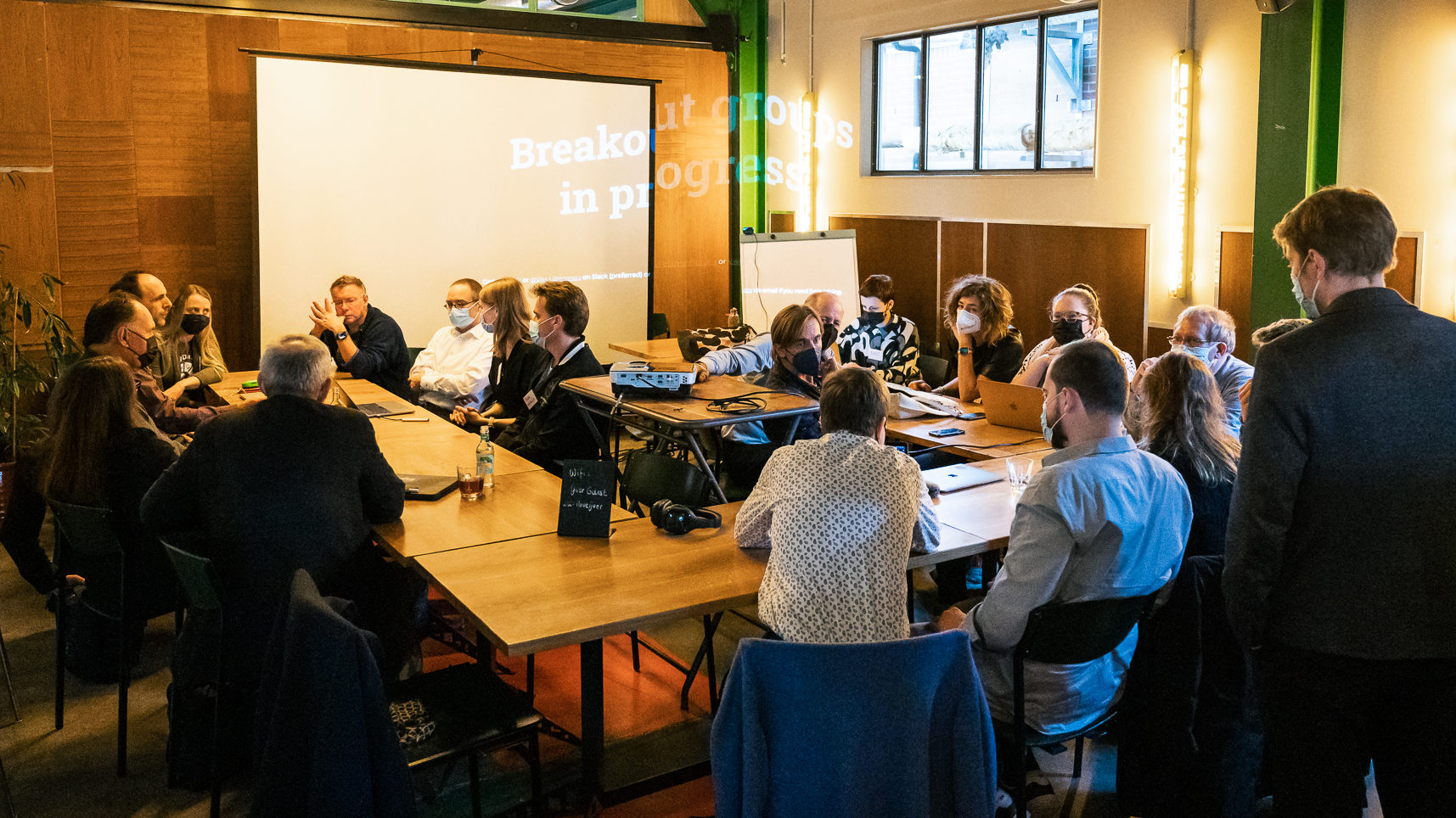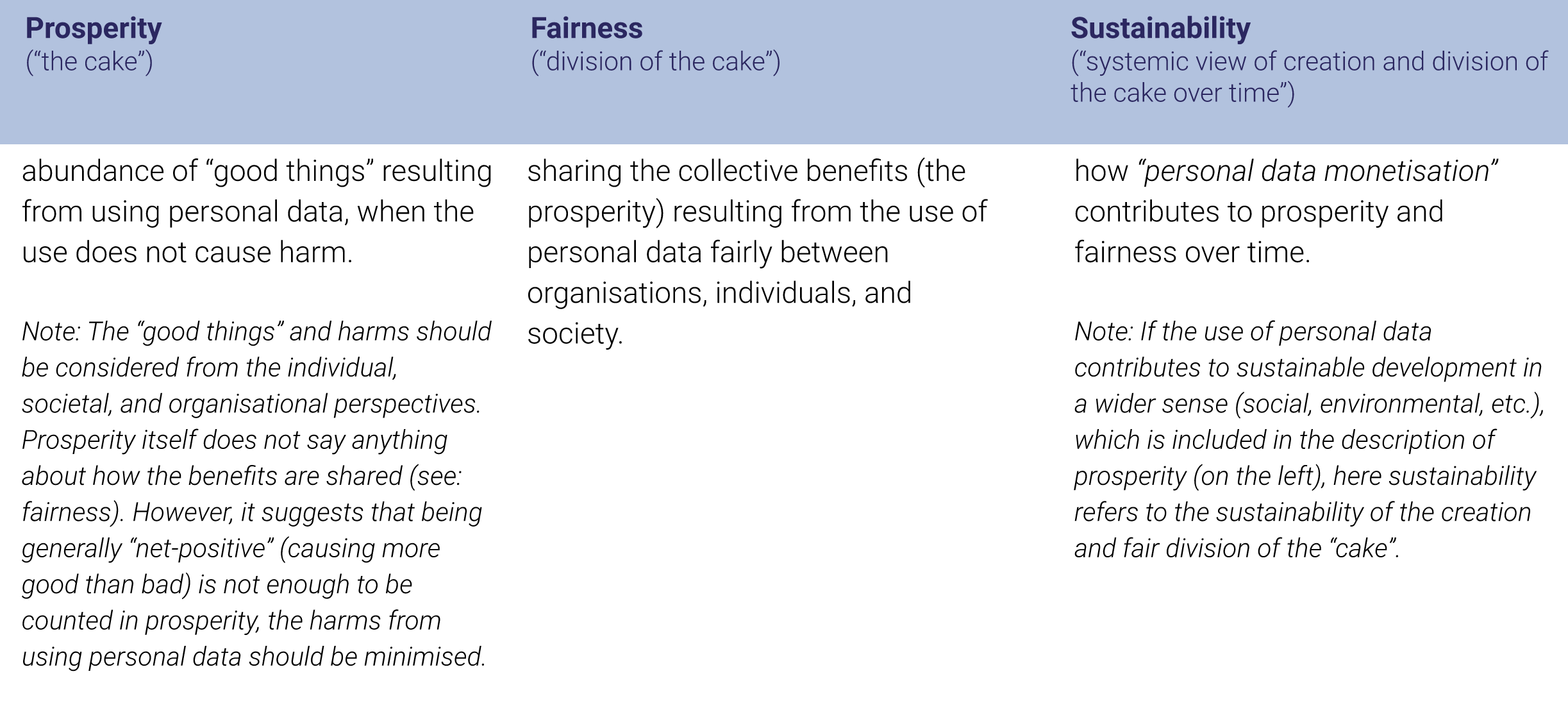Our starting point
The mission of MyData Global is built on human-centricity by empowering individuals to improve their right to self-determination over their personal data. Although this goal may seem uncontroversial, there are many related issues that remain unresolved:
Should individuals “own” their personal data? Should they be able to monetise it? What is the relationship between these two questions, and does a specific position on one necessarily entail a definite position on the other? Should the trade in personal data be regulated? What principles should be adopted to prevent or reduce harm to individuals and society? Will the answers to these questions help us create a more fair, sustainable, and prosperous digital society?
Simple questions can often reveal layers of complexity, and they require inquiry across many disciplines, such as philosophy, economics, sociology, psychology, politics, and many others that defy categorisation. Opinions, both individual and institutional, are moulded on prior thoughts, experiences, and ideologies. In light of this, it is important not to assume the underlying issues and to explore these with careful consideration.
In this context, MyData Global and its community have started to explore the topic to reach a well-founded and justified position. This piece represents the insights gathered from that deliberation. The next steps for coming to a definitive position and how to contribute will be announced later.
Background
Personal data has significant realised and potential social, economic, and practical value. It is key to improving a range of services and products provided by governments, companies, and communities. Rapid advances in data and technology have made it possible to store more data and process it faster, thus driving down prices. These developments have also led to the phenomenon of data lakes, something that is of concern to the MyData community. In the case of data lakes, personal data is amassed rather than kept to the minimum necessary for the transaction. The size of the data lake is equated with value (often in terms of monetary value), and the dominant business models perpetuate this understanding.
The growth of web-based platforms and services has been driven by the monetisation of personal data. These often deploy the model of “free services”, dependent on mass adoption and usage, whilst including a less than transparent trade-off – a “your data for free services” approach. This results in a great power imbalance between individuals and communities on one end and all kinds of organisations on the other in setting the agenda on how data about us is used. Furthermore, both the benefits that can be gained from leveraging that data as well as the risks resulting from its use are disproportionately and often unfairly distributed.
Exploring and making sense of the issue
Complex, even “wicked”, problems such as data monetisation require time to explore broader questions within and around the issue. For that reason, the data monetisation task force1 started by engaging the MyData community members in November 2021 at the Amsterdam Community Meeting to discuss the following topics:
- What can “personal data monetisation” mean for different actors in different contexts?
- What are other related phenomena or questions we could be addressing?
- What perspectives could we take to explore the problem?

The feedback from the workshop was wide ranging, as there was both convergence and divergence in thinking. Some key themes and points from the discussions are captured below (not verbatim or in any particular order):
Foundational questions
- Who owns the future? There is an inherent power asymmetry between those who make decisions about personal data and those who are subject to those decisions.
- How is personal data monetisation linked to societal challenges and goals? Has personal data monetisation resulted in more dignity? Look at practical cases for evidence.
- We understand value and monetisation differently. Money must be distinguished from value – payment/benefits can be achieved through various means (e.g. tokens, coupons, points, privileges).
- Yet, the fundamental question is about “selling data for money” – considering this will also lead to taking an approach on other aspects of value creation.
- What is the issue – monetisation itself, the current models of monetisation, or who benefits from data monetisation?
Governance and means for protecting data rights
- Protection of personal identity is paramount. What happens to data when it is sold?
- Data is accumulated without data subjects’ knowledge, let alone provided with consent (e.g. the Internet of Things, from multiple sources).
- Consent, contracts, and transparency of the value exchange must balance power asymmetries. New tools are needed.
- Whose perspective defines the stance on personal data monetisation – data subject, data holder, third party, or other?
- Who decides and regulates monetisation, ownership, and data rights? How is value defined (including price), and by whom?
- Are current authorities and mechanisms sufficient to change the power asymmetry?
- Purpose of data gathering/use determines the approach to protection/regulation.
These insights show the breadth of the issue and the need for proper deliberation. After collecting insights about the broader issue, the task force aimed to define the problem in a new way2. The team found that the initial problem statement3 did not clearly define the parameters on which conclusions could be reached. To better scope the parameters, a workshop was organised together with MyData Global board members in late April 2022. The result of the workshop was an orientation and guiding framework (see below) for further deliberation.
Insights and recommendations for the future
Recommendation 1: Describe and scope the issue of personal data monetisation and its implications in the context of fairness, sustainability, and prosperity.
Data is monetised in very different forms. For example, Gartner distinguishes between “external or direct” and “internal or indirect” monetisation. The former refers to methods that “include data sharing to gain beneficial terms or conditions from business partners, information bartering, selling data outright (via a data broker or independently), or offering information products and services (for example, including information as a value-added component of an existing offering).” The latter refers to use of data “to make measurable business performance improvements and inform decisions”.
Whilst MyData promotes the ethical use of data for improving services and delivering value for individuals, communities, and organisations, the questions around direct monetisation remain unanswered.
MyData’s central postulation is that a human-centric approach to personal data will lead to a more just, sustainable, and prosperous digital society. Hence, these three values can serve as a guiding framework to make sense of issues such as personal data monetisation. The aim is not to strictly define the issue, but rather to describe it in the context of these guiding values.

Following this guiding frame, personal data monetisation can be described, and its implications tested, on the MyData vision. Furthermore, as data monetisation relates to and affects stakeholders in different ways, it is important to base any general conclusion on these different experiences. The following examples can serve as the basis for understanding and scoping the issue of data monetisation for further discussion.
Recommendation 2: Explore concrete use cases from around the world, where different models of data monetisation may have benefited individuals, organisations, or society as a whole, or may have caused harm to them instead.
Discussions around data can often become theoretical and somewhat abstract. Yet, the effort around taking a stance is not only a philosophical endeavour: it has practical implications for the crystallisation of the human-centric approach to personal data; the MyData community’s internal alignment; and MyData Global’s strategy as an organisation. It is also important to consider the cultural and socioeconomic context of these issues. The notion of individuals “having control” and “benefitting from data” can be understood and valued differently around the world. Because of this, it is essential to look at practical use cases.
Call to action: Share your insights and reflections in the #data-monetisation Slack channel.
Finding answers to questions around personal data monetisation, and agreeing on these widely, is an endeavour that depends on acknowledging the diverse opinions and expertise from across business, legal, technology, and societal perspectives from all around the world. Join the #data-monetisation channel in the MyData’s Slack workspace and contribute with your insights to the topic.
This post was written by the data monetisation task force at MyData Global, whose members were Sille Sepp (Deputy general manager, MyData Global), Chris Lee (board member, MyData Global), and Jay Sharma (MyData community member and representative). We would like to thank all attendees of the Amsterdam community meeting workshop, contributors to the Kialo discussion board, discussants in the #data-monetisation Slack channel, and the board members who attended a monetisation workshop to describe the guiding frame.
1. The task force responsible for designing and facilitating the deliberation process was active from November 2021 to June 2022.
2. The task force’s work was inspired by the Double Diamond method.
3. The initial problem statement was described in the Terms of Reference for the Data monetisation task force.
4. Get access to Slack at https://mydata.org/slack

